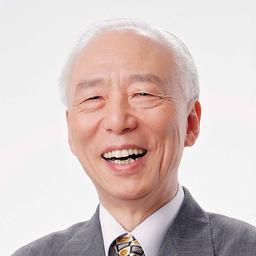Many people have developed kidney problems in recent years. Hong Kong movie star Richard Ng Yiu-hon, who just passed away on April 10 at 83, suffered from kidney failure in his later years and relied on kidney dialysis to survive. However, realizing dialysis’ many challenges, such as inconvenience, the chance of infection, neuropathy, and the like, make some patients refuse dialysis treatment. Can traditional Chinese medicine (TCM) offer any alternative treatment to help patients on the verge of dialysis but unwilling to start it?
Ng suffered from severe kidney failure. In an interview, he revealed that his kidneys were functioning at only 10 percent and he had to undergo dialysis daily. As a result, his range of activities was highly restricted, and he rarely went out.
Why Is Kidney Dialysis Needed?
Kidney dialysis is also called hemodialysis. In a healthy body, blood passes through the excretory system, the kidneys, through which excess or toxic metabolites are prepared to be excreted from the body, while those substances that can still be used are reabsorbed and returned to the blood. The perspiration system also has a similar function of flushing out unusable or toxic substances from the body through sweating.If the metabolic waste in the blood cannot pass through the kidneys and cannot be urinated by the bladder, lots of harmful substances will accumulate in the body. When too many of these toxic substances accumulate, they will trigger all sorts of diseases, sometimes life-threatening. This would be considered kidney failure. Western medicine treats it through hemodialysis, which can help the body expel those accumulated harmful substances.
Self-Examination of Kidney Functionality
Today, all diseases related to poor renal function and renal failure can be diagnosed with the help of equipment. However, one should know how to self-examine before the need for equipment.- Do you feel like you have a lot of water in your stomach after drinking water or soup, but you can’t get rid of it quickly?
- Have you been urinating less frequently, but haven’t felt a full bladder for a long time?
- Do you feel like your body and legs are nearly too heavy to walk?
Accelerate Recovery From Kidney Disease
If kidney function is impacted by any of the symptoms mentioned above and is found to be abnormal, here are a few things to try.1. Avoid Drinking Too Much Water
This may seem counterintuitive; however, drinking too much water will increase the load on the kidneys to make urine, which will tire the kidneys. So drink as much water as you can, but never be swayed by the modern “drink more water” rhetoric.2. Try Less Salt but Don’t Cut Completely
Eating too much salt will increase the kidneys’ workload, which may cause kidney failure. However, if you go to the extreme and do not eat salt at all, it will change the osmotic pressure of the blood, and the kidneys must get rid of excess water to maintain the balance. This, too, will cause an excessive burden on the kidneys and may cause them to fail.3. Replenish Spleen Essence With TCM Treatment
TCM generally believes that kidney disease is caused by a spleen deficiency, which leads to the spleen being unable to restrain the water from the kidneys. Too much water residing inside the kidneys will cause edema. Therefore, the treatment advocated by TCM starts with reinforcing the spleen to let go of excess kidney water.There are various prescriptions for invigorating the spleen, such as Sijunzi (the four combinations) Decoction, Shengyang Yiwei Decoction (Astragalus and Pinella combination) series, Guipi Tang (spleen restoring) Decoction, and the like. Others such as Sishen Decoction are also available to invigorate the spleen and kidney water. These ingredients are all sweet and can be made into a medicinal meal.
The above Chinese medicine prescriptions may sound unfamiliar but they are generally available in Chinese medicine stores. Please consult a professional physician or TCM practitioner before using these medicines.

How Does TCM Treat Kidney Disease?
Modern-day Western medicine pays more attention to the material basis; the main thing a doctor does is to look for the pathogen: Which bacteria or virus will cause which disease, or which mineral or vitamin is insufficient (or too much) that might cause the disease.TCM, however, follows the sacred path of syndrome differentiation and treatment to deduce the cause of illness. Such etiology can be divided into the “three causes”: external, internal, and neither internal nor external. The external cause is due to weather, which refers to the six qi: wind, fire, heat, dampness, dryness, and cold.” The internal cause is due the emotions, such as the seven emotions: joy, anger, worry, overthinking, grief, fear, and fright. The last category is other things due to neither weather nor emotions.
TCM Strives to Find and Address the Root Cause of Symptoms
People who are damp in nature and tend to worry, overthink, or have fears or fright are prone to kidney disease. The best way to help a person with TCM is to start with their specific constitution and take it from there. This is “seeking the good and avoiding evil.”Kidney Disease Patients May Find Hope in TCM
If Western medicine has determined that a patient needs dialysis, is it too late to switch to TCM? Many Western doctors rely on data for diagnosis. When data say people are sick, they are sick—end of discussion.In TCM, it is believed that disease symptoms are related to specific systems in the body. To which viscera and meridians do the symptoms correlate? Is there any deficiency or excess of cold or heat? Which of the six qi are involved? Which of the seven emotions are affected? All of these things are considered the real symptoms in TCM. Only when the disease’s root causes are identified can the disease be cured.
When Western medicine diagnoses kidney failure based on the numbers, it tries to improve the numbers, which is entirely different from TCM. TCM uses the “syndrome differentiation and treatment” method, which means treatment targets the syndrome. For example, if it is cold, TCM will try to warm it; if it is damp, TCM will remove dampness; if a viscera is deficient, TCM will nourish it. If the condition can be improved, why still go for kidney dialysis?





